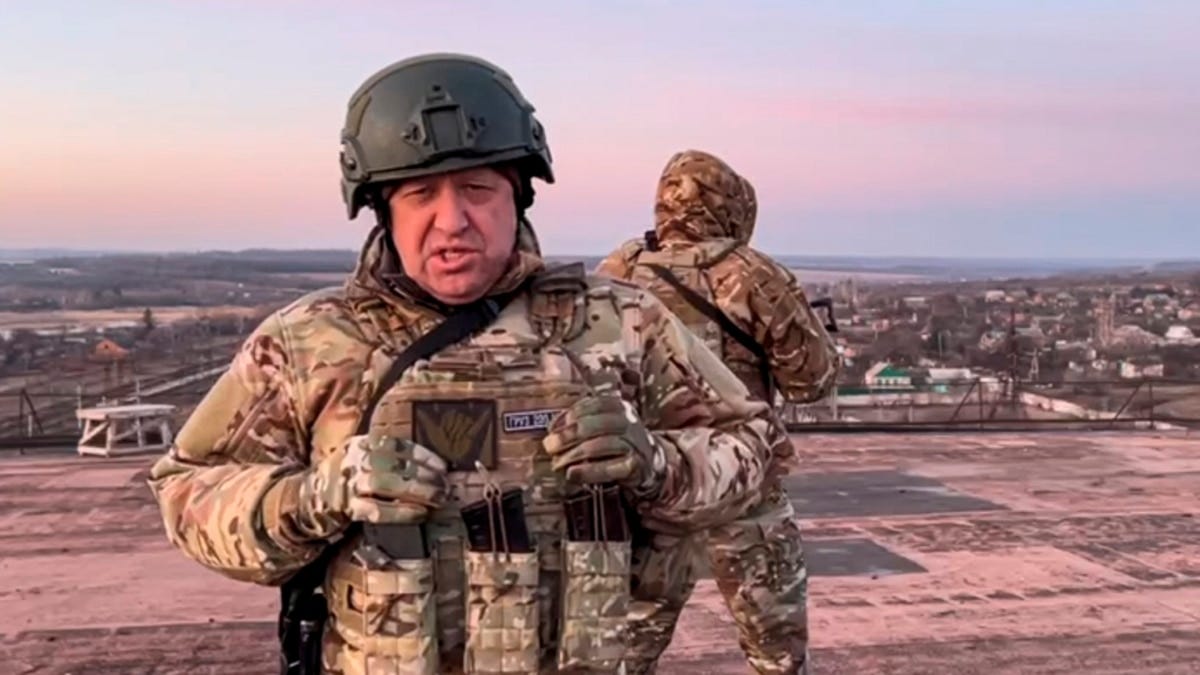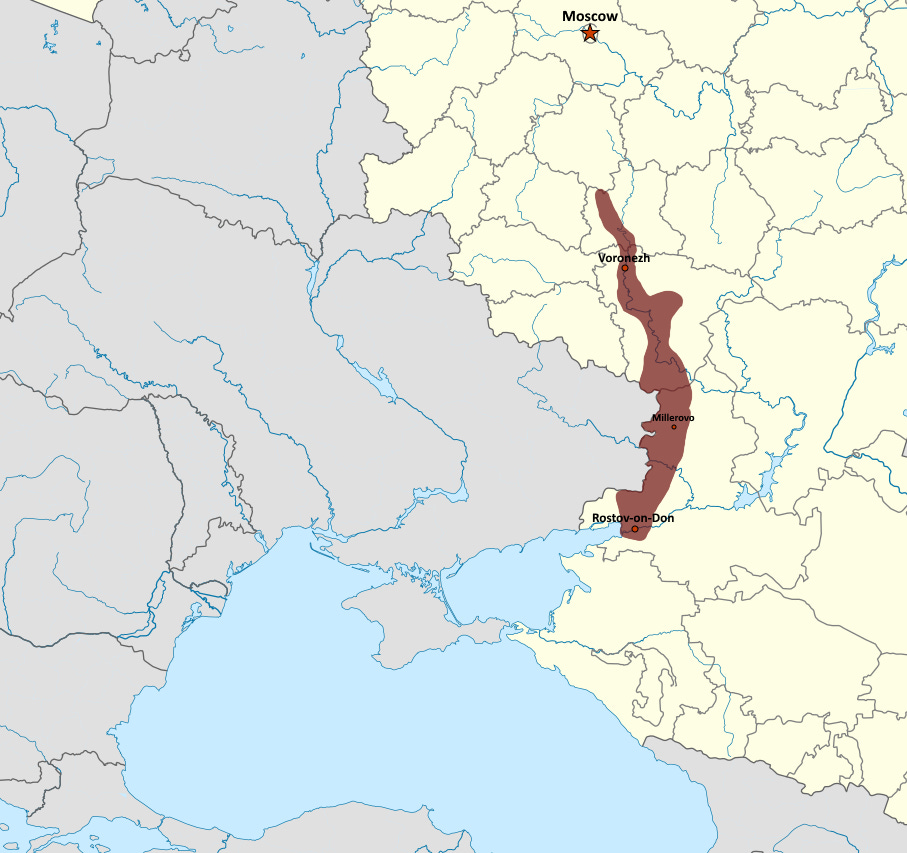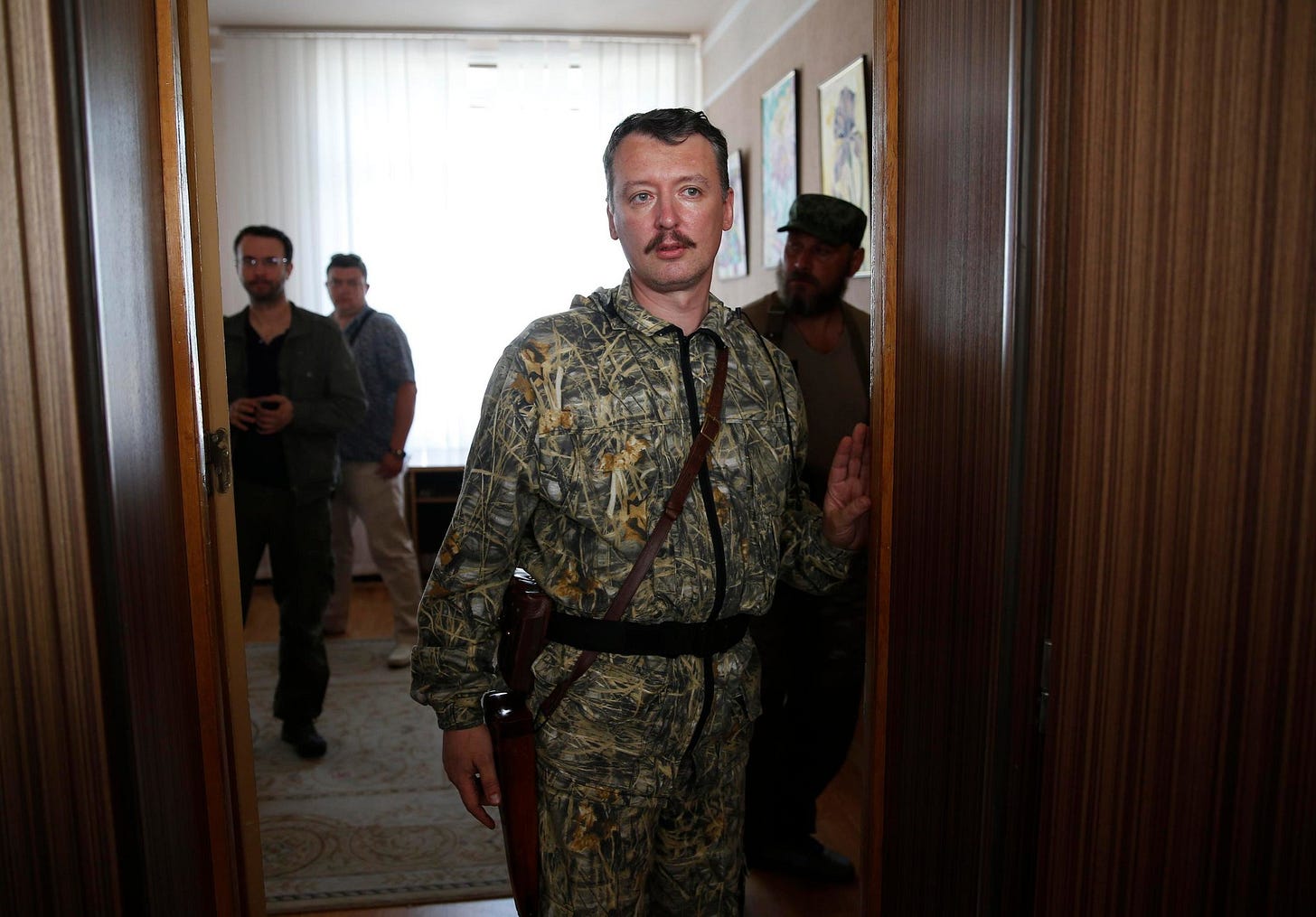Interpreting the Wagner Mutiny
Why did it happen? Why did it end? What can we expect the consequences to be?
The recent mutiny of Wagner Group is still difficult to believe, much less comprehend. The public and Kremlinologists alike shared in a sense of utter incredulity as it unfolded. Rogue mercenaries belonged to the seventeenth century, not the twenty-first.Its conclusion was as surprising as its inception. Seemingly with a clear route to Moscow, having met no opposition and having downed several Russian aircraft, Prigozhin announces his unwillingness to shed blood. Putin, after denouncing the rebels as traitors, declares that all is forgiven. How can we make sense of this all?
It must be acknowledged that there is only so much that can be said given the opacity of Russian politics. In a personalist dictatorship, politics does not happen in legislative halls or in party meetings, but in relationships between the dictator and his chosen few. These crucial details will not become public any time in the near future. As such, analysis of the mutiny will inevitably be lacking in certainty and detail because of this lack of information. In light of this, I hope to offer an interpretation that will hopefully provide a framework for understanding the events of the mutiny and its still-developing aftermath.
To begin with, some background is essential. Wagner Group is an arm of the Russian regime masquerading as a Private Military Contractor or mercenary group. It is often reported as such, but this status has always been in name only. Its activities have always been funded and directed by the Kremlin, with its purported status as a private company a fig leaf to provide deniability. Wagner Group has seen extensive fighting in Ukraine, most notably in the brutal battle of Bakhmut. That Wagner was assigned to such a charnel house raised suspicions that there was an intention for Wagner to bleed itself white. This was apparent to Western analysts as well as to Wagner itself. This fed conflict between the Ministry of Defense (MoD) and Wagner Group.
The conflict came to a head when it was announced that Wagner would be required to sign a contract with the Ministry of Defense, directly subordinating Wagner to it. For a long time now, Prigozhin has aligned himself with Russia’s nationalist right in criticizing the MoD’s handling of the war. This group, consisting of “mil-bloggers” running telegram channels and providing a narrow base of fervent support for the war, desired society-wide mobilization against Ukraine. They openly called for total war and an increase in systematic war crimes against Ukraine. These voices increasingly criticized the MoD and its head Sergei Shoigu for “limiting” the prosecution of the war.
Wagner’s mutiny must be understood in the context of this struggle. Putin had sided with the MoD, swinging the power struggle decisively against them. At the same time, there was a growing niche of resentment towards the half-measures of the MoD that strongly supported Wagner and Prigozhin. In these conditions, Prigozhin sought to demonstrate the ineffectiveness of the MoD and reorient Russia towards a more extreme course for prosecuting the war, a change which would-not coincidentally-see him ascendant over the MoD. Wagner Group did not intend to mutiny against Putin, but against the MoD, as part of a power struggle between Putin’s subordinates.
What the revolt was not was an attempted coup. It very much looked like one, but ultimately was not. Had Prigozhin attempted a coup, it’s unlikely Putin would have offered him any kind of deal. Instead, Prigozhin was maneuvering to try to remove rivals and gain access to Putin’s inner circle. Prigozhin aimed to force Putin to recognize him as a subordinate partner with an independent base of power and displace the Ministry of Defense. He hoped that Putin, seeing the weakness of the MoD and the strength of Wagner, would agree to prosecute the war in a more extreme manner, with Wagner playing a larger role.
It was for this reason that Prigozhin was constantly in negotiations with Putin, or attempting to do so, something which would be inexplicable if the goal was a coup. Rather, Prigozhin sought to convince Putin to legitimize and take part in a self-coup that would turn out the Ministry of Defense and satisfy the right-nationalists calling for an intensification of the war effort. The moment Putin declared Prigozhin a traitor and began having officials make statements against him, it became clear that effort had failed. Without Putin being complicit or at least neutral, Wagner’s mutiny stood no chance of success.
Prigozhin was able to make a deal because Wagner remained a serious threat, because if Putin did not offer Prigozhin a deal, he would have had to bloodily crush the revolt. Making a deal was also palatable for Putin because Prigozhin did not betray him personally. In most legal systems a mutiny of this kind would be considered treason and punished as such. However, Putin is concerned primarily with personal loyalty. Prigozhin’s struggle against the MoD was a struggle for Putin’s favor, not against Putin himself. Therefore, even though Prigozhin mutinied, he did not betray Putin. His attempt at personal aggrandizement targeted other subordinates, but not the dictator himself. As a result, within the peculiar dynamics of the personal relationships that define the politics of Russia’s elite, while Prigozhin’s transgression will not be forgotten, he may be forgiven and allowed to live, albeit deprived of power and influence.
On the other hand, few people would be surprised if Prigozhin happened to die unnaturally in the immediate future. Regardless of the mutiny’s intentions, it humiliated Putin and exposed the fragility of his regime. Whatever favor Prigozhin gained from remaining loyal and quickly coming to terms has to be balanced against the hatred he earned for instigating such an embarrassment. Yet, Putin has some good reasons to hold off from killing Prigozhin even if he wants to do so. The first of which is that Wagner Group has not yet been dismantled and absorbed into the state, though the process seems to be underway. Prigozhin being killed would give Wagner fighters little reason to have confidence in their own safety. This might lead to a second revolt fueled by desperation. Prigozhin serves as a canary for the Wagner fighters that took part in the mutiny. Therefore, Putin may find it most useful to keep him alive as proof of the sincerity of his amnesty, at least until Wagner Group no longer exists as a coherent entity.
A year into the “Special Military Operation,” Russia has still not achieved what it hoped to in the first seventy-two hours. In these conditions, Putin may be relieved at the limited scale of the mutiny.
Putin has another compelling reason to be magnanimous: the Russian war-effort has suffered from a chronic shortage of manpower. Despite its large population relative to Ukraine, Russia has relied exclusively on forms of crypto-mobilization for reasons I outlined in my first ever Substack article. Wagner Group recruiting was one of these methods. As Prigozhin’s personal base of power, they were also better equipped than many other Russian formations. Consequently, keeping Prigozhin alive for the moment is worthwhile if it means continued access to Wagner manpower, an especially vital commodity in light of the ongoing Ukrainian counter-offensive.
Finally, Putin may be restraining his desire for vengeance due to the popular auspices under which Prigozhin conducted his mutiny. The mutiny was framed as a “march for justice” aimed at addressing corruption and delivering a final victory against Ukraine. The truthfulness of these motivations compared to that of Prigozhin’s personal aggrandizement is doubtful, but these objectives resonated strongly with Russia’s ultranationalist community, especially the “mil-bloggers.” Prigozhin, through his mutiny and public statements voicing criticisms popular in this sector, has acquired some measure of popular support. Killing Prigozhin would risk alienating this vital, explicitly pro-war, constituency. While Putin could crush all dissent from this small segment of the population, they remain useful to the regime. That loyalty is worth maintaining if the cost is as small as keeping Prigozhin alive for the time being. Prigozhin’s safety in this way is not only symbolic for the safety of regular Wagner troops, but a sign that the Kremlin is responsive to the criticisms Prigozhin claimed motivated the mutiny.
In this second scenario, Prigozhin is safe, but only for the moment. Putin has forgiven nothing, but is delaying his revenge. While this seems most intuitive, it’s hard to rationalize Prigozhin’s decision to come to terms. The leaders of failed putsches have predictable fates, which is why their surrender is uncommon, at least while there remains the faintest glimmer of hope. Prigozhin must have had some reason to believe Putin would not do what essentially every outside observer has predicted, and have him killed. It’s obviously possible that Prigozhin completely miscalculated and deluded himself as to Putin’s capacity for mercy, but it’s difficult to imagine that someone with such close proximity to the realities of dictatorship would hold illusions about the consequences of mutiny.
As such, it is most likely that Prigozhin either has material guarantees that he will not be shortly disposed of, or judge from personal acquaintance that Putin does not actually want him dead. Prigozhin is not in the Kremlin inner circle, but has known Putin for decades. He certainly has a better understanding of what Putin is likely to do than outside commentators. For him to have chosen to trust Putin, he most likely has some basis for doing so, considering that his life is at stake.
Both explanations I’ve explored here suggest that Prigozhin will remain alive, at least for the immediate future. While it is hard to make any predictions in the aftermath of such a bizarre series of events, it seems certain that Putin will absorb Prigozhin’s power base. Wagner may remain extant in order to capture the support of its sympathizers. Putin will promote Kremlin-beholden voices to the nationalists and mil-bloggers to replace Prigozhin’s presence. It remains to be seen whether those who rallied around Wagner and Prigozhin due to dissatisfaction with the MoD will grant any credibility to these figures.
The discontented right wing has always been the greatest danger to Putin. Though many within it will not suddenly become satisfied with the direction of the war, the abortive nature of Prigozhin’s mutiny has severely undermined the threat. In fact, it may prove that beyond the clear humiliation, the greatest consequence of the mutiny was the strengthening of Putin’s hold on power. Putin has been given the chance to dismantle Wagner and identify those first to join a mutiny. For example, it is reported that General Suvorikin has been detained for questioning regarding his role either as a sympathizer or co-conspirator. Putin has the opportunity to hold anyone who failed to show unquestioning loyalty during the mutiny to account.
Thus, Putin may prove less concerned about Prigozhin himself, and more focused on punishing those that aided him. Putin may hold less of a grudge against Prigozhin than on those who opportunistically sided with him. Prigozhin, by capitulating so quickly, unintentionally ensured Putin faced the smallest threat to his power that could have possibly manifested. Even if Wagner stood no real chance of carrying out a coup, Prigozhin’s unwillingness to spill blood and readiness to come to terms made it a minimally threatening revolt. If Putin had been faced with a revolt no more widespread, but more determined, it would have exacted a much higher toll. Prigozhin’s malleability has brought about an outcome immensely favorable to Putin, where the disloyal have been revealed and very little material damage was done.
Putin will be most interested in using this incident to root out those that proved unreliable. A year into the “Special Military Operation,” Russia has still not achieved what it hoped to in the first seventy-two hours. In these conditions, Putin may be relieved at the limited scale of the mutiny. With the clearest threat behind him, he can continue to insulate his regime from discontent within the armed forces. The mil-blogger and ultranationalist community will continue to present a challenge as it objects to the mismanagement of the war. But those most sympathetic to mounting any opposition will have been exposed and purged during the mutiny. As such, at present, the clearest effect of the mutiny in the long term is an increase in the security of Putin’s power. As much of a humiliation and show of weakness this may appear, this outcome is much more beneficial for Putin than a conspiracy that could bide its time and aim higher when he was more vulnerable or its base of support more broad.





